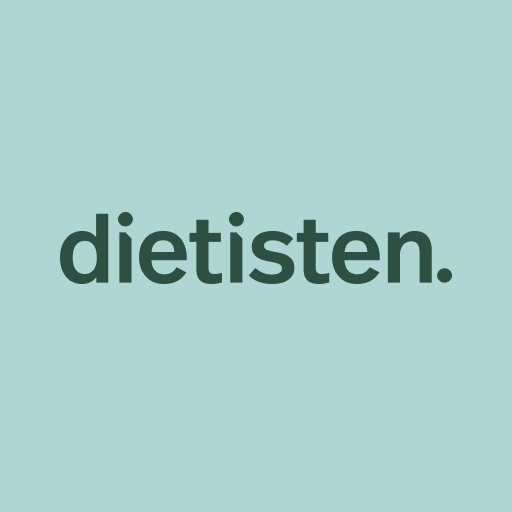EFSA conclude aspartame and its breakdown products are safe for human consumption at current intake
EFSA conclude aspartame and its breakdown products are safe for human consumption at current intake levels On 10 December 2013, the European Food Safety Authority … Läs mer,


EFSA conclude aspartame and its breakdown products are safe for human consumption at current intake levels
On 10 December 2013, the European Food Safety Authority (EFSA) released its opinion on the re-evaluation of aspartame as a food additive and concluded that aspartame and its breakdown products are safe for human consumption at current intake levels.
Aspartame is authorised in the EU for use as an additive to sweeten a variety of foods and beverages (e.g. desserts, sweets, chewing gum, yoghurt, low calorie and weight control products) and as a table-top sweetener. Consumers can identify foods containing aspartame by looking at the ingredients lists on the product label. Like all authorised food additives, aspartame has been assigned an ‘E-number’. Its presence in foods can be indicated either by name or by number, i.e. E 951.
Aspartame has been authorised for use in foods and as a table-top sweetener for almost 30 years in many countries throughout the world, following thorough safety evaluations. The first safety assessment of aspartame carried out in Europe was published by the Scientific Committee on Food (SCF) in 1984. Subsequent complementary assessments were made by the SCF in 1988, 1997 and 2002. In 1984, the SCF established an Acceptable Daily Intake (ADI) for aspartame of 40 milligrams per kilogram of body weight per day. The ADI is an estimate of the amount of a food additive, expressed on a body weight basis that can be ingested daily over a lifetime without appreciable health risk. Since the establishment of the European Food Safety Authority (EFSA) in 2002, the Authority reconfirmed the safety of aspartame in 2006, 2009, 2010 and 2011.
This latest re-evaluation of aspartame by EFSA forms part of its re-evaluation of all food additives which were authorised in the EU prior to 20 January 2009. Commission Regulation (EU) No 257/2010 sets down the timelines for these re-evaluations, all of which are to be completed by EFSA by 31 December 2020. Aspartame was originally scheduled for re-evaluation by 2020; however, in May 2011, the European Commission asked EFSA to bring this forward to 2013.
The re-evaluation of aspartame was carried out by EFSA’s Panel on Food Additives and Nutrient Sources Added to Food (ANS). To carry out this re-evaluation, the ANS Panel undertook a rigorous review of all available scientific research on aspartame and its breakdown products, provided both by animal and human studies. These included original study reports, previous evaluations and information submitted following public calls for data. From 8 January to 15 February 2013, EFSA held an online public consultation on its draft scientific opinion on the re-evaluation of aspartame as a food additive. On 9 April 2013, EFSA held a follow-up meeting with interested parties to discuss the draft scientific opinion and the feedback received from the online public consultation. EFSA received over 200 comments during its online public consultation as well as key learnings from exchanges with stakeholders at the follow-up meeting. Before finalisation of the scientific opinion, the ANS Panel also evaluated literature published between the end of the online public consultation and 15 November 2013. This process ensured that the widest possible range of scientific views and information were considered by the ANS Panel.
EFSA concluded that aspartame and its breakdown products in the body (phenylalanine, aspartic acid and methanol) are safe for human consumption at current intake levels and that the current Acceptable Daily Intake (ADI) of 40 milligrams per kilogram of body weight per day is suitable for the general population. However, in patients suffering from the medical condition phenylketonuria (PKU), the above ADI is not applicable, as they require strict adherence to a diet low in phenylalanine. With respect to pregnancy, the ANS Panel noted that there was no risk to the developing foetus from exposure to phenylalanine derived from aspartame at the current ADI (with the exception of women suffering from PKU). The opinion also makes clear that the breakdown products of aspartame are also naturally present in other foods, for example methanol is found in fruit and vegetables. The contribution of breakdown products of aspartame to the overall diet is low.
For further information please see:\nEuropean Food Safety Authority. (2013). Scientific Opinion on the re-evaluation of aspartame (E 951) as a food additive. EFSA Journal 11(12):3496\nEuropean Food Safety Authority. (2013). Output of the public consultation on the draft EFSA scientific opinion on the re-evaluation of aspartame (E951) as a food additive. EFSA supporting publication: EN-523. 124 pp.\nEuropean Food Safety Authority. (2013). Press release: EFSA completes full risk assessment on aspartame and concludes it is safe at current levels of exposure.\nThis press release is available in 11 languages on www.eufic.org (Czech,German, English, Greek, Spanish, French, Hungarian, Italian, Polish, Portuguese and Slovak).\nEUFIC Review. 2012. Benefits and safety of low calorie sweeteners.
Källa: EUFIC



